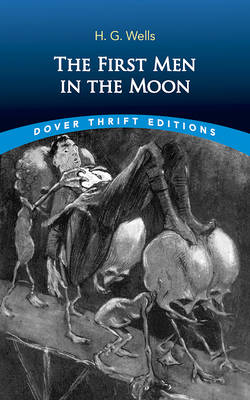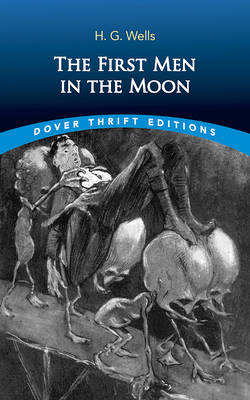
- Afhalen na 1 uur in een winkel met voorraad
- Gratis thuislevering in België vanaf € 30
- Ruim aanbod met 7 miljoen producten
- Afhalen na 1 uur in een winkel met voorraad
- Gratis thuislevering in België vanaf € 30
- Ruim aanbod met 7 miljoen producten
Omschrijving
Of the enormous body of work produced by H. G. Wells -- more than a book a year over the course of half a century -- the early science fiction novels that first made him famous have proved to be the most enduring and have earned him the sobriquet "the father of modern science fiction."
In the 1901 classic The First Men in the Moon, Wells reveals not only a fertile imagination at ease with biological and astronomical phenomena, but also a passionate concern for man and society. His "first men in the moon" prove to be the eccentric Mr. Cavor and his traveling companion, Mr. Bedford, who navigate a gravity-defying sphere through space before executing a rough landing on the moon. As castaways from earth, they practice lunar locomotion, get lost in the wilds of a moon jungle, and confront intelligent life forms living in lunar caverns. Through the adventures of these two earthlings, the author is able to look at mankind from a distance and, in his words, "burlesque the effects of specialization." The result is a delightful tale filled with adventure, romance, and fantasy that is still capable of stirring the imagination of readers in the 21st century.
"[Wells's science-fiction novels] achieve a near poetry which makes them part of the popular mythology of their age ... the best of his work has a vitality, a verve, an imaginative compulsion unsurpassed by any of his contemporaries." -- N. C. Nicholson, author of H. G. Wells.
Specificaties
Betrokkenen
- Auteur(s):
- Uitgeverij:
Inhoud
- Aantal bladzijden:
- 161
- Taal:
- Engels
- Reeks:
Eigenschappen
- Productcode (EAN):
- 9780486414188
- Verschijningsdatum:
- 18/12/2000
- Uitvoering:
- Paperback
- Formaat:
- Trade paperback (VS)
- Afmetingen:
- 132 mm x 211 mm
- Gewicht:
- 127 g

Alleen bij Standaard Boekhandel
Beoordelingen
We publiceren alleen reviews die voldoen aan de voorwaarden voor reviews. Bekijk onze voorwaarden voor reviews.











